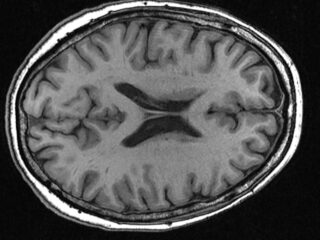The knowledge gap in women’s health in the Netherlands results in an estimated annual loss of €12.6 billion in Gross National Product. Innovations could compensate for 42% of this loss, according to the Netherlands Women’s Health Research & Innovation Center (NL-WHRIC).
The NL-WHRIC is an initiative led by internist Jeanine Roeters van Lennep, head of the Research & Development Office Greet Vink, and professor of Cardiothoracic Surgery Hanneke Takkenberg. ‘Women spend 25% more of their lives in poor health than men. This not only affects women’s health and well-being but also has profound economic and societal consequences’, says Greet Vink.
It has long been known that women’s bodies may react differently to certain diseases and medications than men’s. This applies to both physical and mental conditions. Additionally, some conditions affect only women. The Netherlands Women’s Health Research & Innovation Center will consolidate existing knowledge and expertise to develop new insights, diagnostics, therapies, medications, and medical devices.
The new Netherlands Women’s Health Research & Innovation Center aims to close the gender health gap
Vink explains: ‘The Netherlands Women’s Health Research & Innovation Center will bring together doctors, academics, patients, consumers, and policymakers to investigate the factors influencing women’s health and well-being throughout their lives.’
Men
Historically, medicine has been based on knowledge of the male body, as Hanneke Takkenberg points out. ‘Doctors used to be almost exclusively men. Medical research was conducted on male test animals and white male participants. Today, 70% of doctors are women, so there is an urgent need that medical science focuses more on women.’
She continues: ‘More than one in three women report that a doctor did not believe them, made assumptions without further inquiry, or blamed them for their health problems. Women are also more likely to experience delayed or incorrect diagnoses or receive inadequate treatment due to biases among healthcare professionals.’
Cardiovascular Diseases
Jeanine Roeters van Lennep has been running a special cardiovascular prevention clinic for women who have experienced severe preeclampsia. These women face an increased risk of cardiovascular disease later in life. Through this clinic, Roeters van Lennep hopes to improve postnatal care, enhance women’s health, and prevent cardiovascular diseases.
‘We have already gathered a vast amount of knowledge about the differences between female and male bodies. Experienced doctors are well aware that women can experience different symptoms than men in many conditions ranging from cardiovascular disease to autism. At the Women’s Health Research & Innovation Center, we aim to bring together all this knowledge and expertise.’
Generation R
The Netherlands Women’s Health Research & Innovation Center is working on an extensive database. Greet Vink explains: ‘We want to build valuable datasets to study the biological, socioeconomic, environmental, and interpersonal challenges that prevent women from achieving optimal health. Many girls and women in Rotterdam are already participating in studies such as Generation R and Ergo. Their contributions provide crucial data to improve our understanding of female health in Rotterdam.’
Returning to the topic of medical research, Roeters van Lennep states: ‘The recommended medication dosages for women are often based on male physiology. Women’s bodies are generally smaller, leading to incorrect dosages and increased side effects. On the other hand, women are also more likely to be undertreated and receive fewer medications that are recommended by guidelines.’
No More Looking Away
The three initiators conclude: ‘The Netherlands counts over 8.8 million women. Almost every woman will, at some point in her life, encounter female-specific conditions or health issues that affect them more severely than men. It is incomprehensible that so little knowledge has been documented on this. Without this knowledge, we cannot properly treat these conditions. We can no longer afford to look away—women’s health issues are ultimately a problem for everyone.’
They hope that within ten years, the focus will shift from illness to health and from health to a healthy life course for all women. ‘Our goal is to achieve groundbreaking scientific breakthroughs and innovations that specifically target women’s health throughout their entire lives!’
Background
The Netherlands Women’s Health Research & Innovation Center is a virtual center conducting research on various female-specific conditions such as menstruation, fertility, pregnancy, menopause, and certain types of cancer.
It will also focus on conditions that manifest differently in women, such as cardiovascular diseases and musculoskeletal disorders. Additionally, the center will study mental health and the impact of issues like domestic violence on women’s health in long run.
It aims to unify fragmented health research and innovation efforts by leveraging diverse expertise and connecting data infrastructures, focusing on unmet women’s health needs across the life course.
The Center’s objective is also to close critical gaps in the data value chain by leveraging digital transformation, AI and big data analytics to create sex- and gender-responsive health solutions including providing a knowledge hub for researcher.
Initially, data from Erasmus MC will be compiled, but researchers from other Dutch and international healthcare institutions are also welcome to join and contribute.



